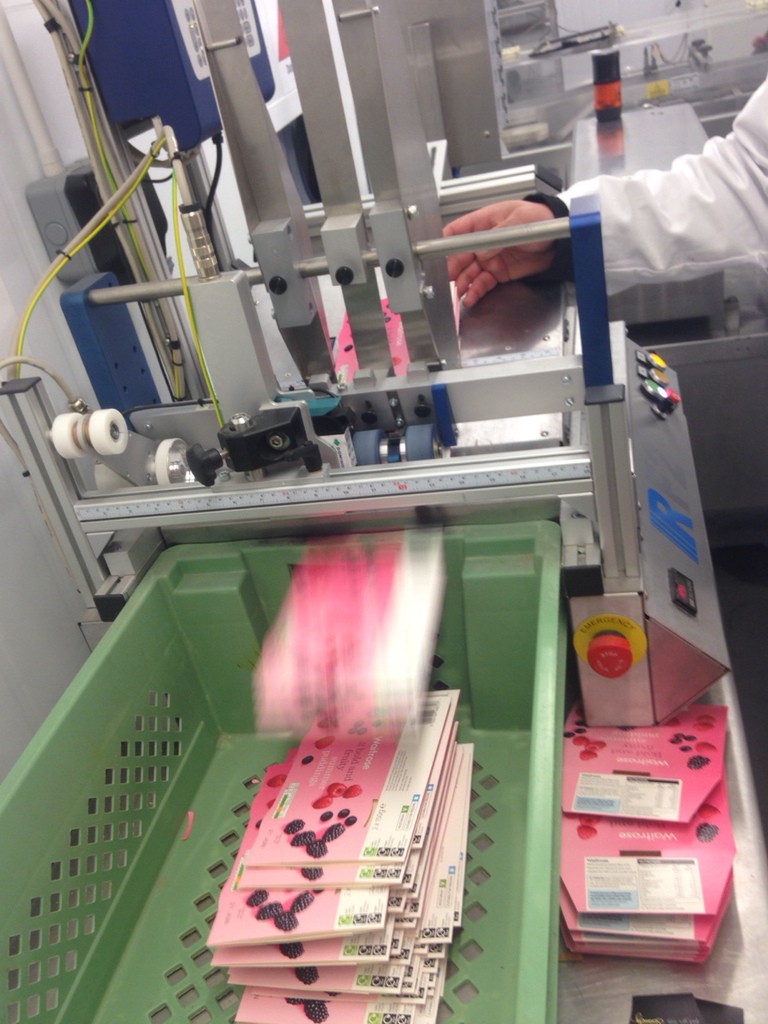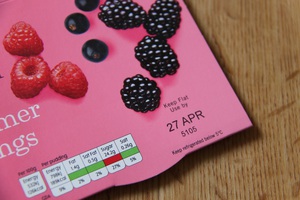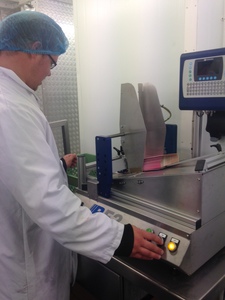

|
Edward Lowton
Editor |


|
Coder proves a recipe for success
04 October 2015
The purchase of an offline RF2 coder from Rotech has transformed the sleeve coding operation at Holt-based Heaven Made Foods, eliminating inefficiencies and quality issues. With the Rotech system, which typically runs off 80-100 sleeves per minute, date coding is done in 10% of the time previously taken.

Chilled dessert manufacturer Heaven Made Foods has invested £0.5 million in a versatile production line and chiller tunnel for its core jellies and summer puddings on the back of substantial sales growth. In addition, the Norfolk company has been busy developing new product lines, among them a new range of vegetarian jellies. Like many of Heaven Made’s other desserts, the new range is packed in tubs with cardboard sleeves, which meant it needed a way of coding an increased volume of sleeves with batch codes and use-by dates.
Heaven Made had existing online coding capabilities, but was coming up against several issues, as Oliver Elmer, MD of Heaven Made Foods, explains: "A lot of our products use card sleeves, and the shapes and angles vary considerably. It is a difficult process to set up with each product change, and we have never been totally happy with the quality.”
Exasperated with the performance of its existing coding equipment, and with a new range coming on stream, the company was aware that coding efficiency and quality had to be addressed.
"With the new range, quality was paramount and in order to achieve the targets set within the costings, we needed to date code the sleeves far faster,” said Elmer. "Rotech was very clear about its abilities. The quality looked very good. Its machines are British made and the after-sales support and advice is only a phone call away.”
Rotech recommended its RF2 - a standalone friction feed overprinting system that would enable Heaven Made Foods to code sleeves offline and bring them to the production line already printed. Engineered specifically for the food industry, the RF2 uses Rotech’s stack-to-stack feeding technology to pick sleeves from a stack, accurately print date or batch codes, and place the printed sleeve neatly onto another stack for collection, all at speeds of up to 400 per minute.
"The ability to code offline whilst the sleeve is still flat makes for a far better job, and enables the exact amount to be produced for that batch,” said Elmer.
It was also important to Heaven Made Foods that the offline coder could be adjusted to accommodate different sleeve sizes and designs. The hopper guides on the RF2 can be quickly changed via a simple mechanical adjustment to suit different sleeve dimensions, and the same system can switch between rectangular, curved and watch strap sleeves as well as cartons.
The producer also liked the fact that with the RF2 there are no restrictions on where the print area can be.
Rotech specified a system that used TIJ (thermal inkjet) printing. Richard Pether, Rotech’s director, says: "Thermal inkjet coders are extremely easy to use and require zero maintenance. All the user needs to do is change the cartridge when the ink runs out, which literally takes a couple of minutes. TIJ also alleviated this customer’s quality concerns, as it is capable of printing very clear codes at very high speed.”
Heaven Made Foods was impressed with the short turnaround from placing the order to having the system installed and running.
- Inline carton feeder aids pharma traceability
- Feeding for coding: One size doesn't fit all
- Sleeve coding
- Quick to tackle bait packaging problem
- Autoglym get shining results with new coding technology
- Label-free, large area printing
- Uncoding the benefits of TIJ
- Rotech introduces anti-counterfeit UV printing
- No related articles listed



















